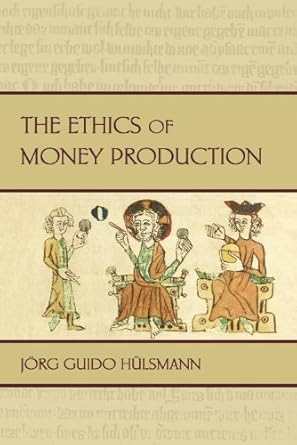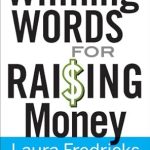Discover the groundbreaking insights of Jörg Guido Hülsmann in “The Ethics of Money Production,” a must-read for anyone curious about the true nature of money and its ethical implications. Hülsmann, a respected professor of economics, challenges the long-held belief that government should control money production. Instead, he makes a compelling case for privatizing money, arguing that it should function like any other commodity—free from coercion and monopoly. This thoughtful exploration not only critiques the inefficiencies of national monetary systems but also delves into the rich history of monetary thought, making it an essential resource for understanding our modern economic landscape.
With a blend of rigorous scholarship and accessible writing, this book is perfect for those who seek to question conventional wisdom about money management. Hülsmann’s analysis shines a light on the dangers of paper money and the ethical dilemmas surrounding government intervention, prompting readers to consider a more liberated approach to currency. If you’re looking to deepen your understanding of money and its role in society, “The Ethics of Money Production” offers a radical yet enlightening perspective that could change the way you think about economics forever.
The Ethics of Money Production (LvMI)
Why This Book Stands Out?
- Pioneering Exploration: This is the first comprehensive study of the ethics surrounding money production, challenging long-held assumptions and presenting a fresh perspective.
- Radical Thesis: Hülsmann argues that money should be produced privately, not managed by governments, providing a thought-provoking critique of national monetary systems.
- Historical Depth: The book traverses monetary thought from ancient times through the Middle Ages to today, offering a rich historical context that enhances its arguments.
- Normative Analysis: Drawing on the overlooked writings of 14th-century Bishop Nicole Oresme, Hülsmann adds depth to his critique of legal-tender laws and government monopolies.
- Prophetic Insights: The author’s analysis resonates with contemporary economic issues, predicting the pitfalls of reliance on paper money and the dangers of speculative behavior.
- Scholarly Rigor: A well-researched and scholarly treatise that builds on the foundations laid by economic greats like Menger, Mises, and Hayek, making it a vital addition to economic literature.
- Ethical Challenge: Hülsmann’s arguments serve as a compelling ethical critique of state control over money, inviting readers to rethink the relationship between money and governance.
Personal Experience
As I delved into The Ethics of Money Production by Jörg Guido Hülsmann, I found myself reflecting deeply on my own understanding of money and its role in our society. The book challenges so many conventional beliefs that it’s hard not to feel a sense of personal awakening. Here are some insights that resonated with me and might resonate with you as well:
- Questioning Assumptions: I’ve often taken for granted the idea that government should manage our money. Reading Hülsmann’s arguments made me reconsider my stance and question why we accept this monopoly without challenge.
- Historical Perspective: The historical journey through monetary thought was eye-opening. It reminded me of the times I’ve felt frustrated by economic instability, making me wonder how much of that could be linked to our current monetary systems.
- Personal Finance Reflections: As I reflected on my own financial choices, I realized how much I’ve relied on the stability that I assumed government-backed money provides. Hülsmann’s insights about the risks of paper money made me rethink my investments and savings strategies.
- Empathy for Others: The book’s exploration of how inflation and monetary policies impact everyday people struck a chord with me. I thought about friends and family who have struggled with rising costs and financial insecurity, deepening my empathy for their situations.
- A Call to Action: The provocative claims about the need for privatization of money production sparked a desire in me to learn more and engage in discussions about money and economics. I felt motivated to seek out diverse perspectives and challenge my own views.
Engaging with this book was more than just an academic exercise; it felt like a personal journey into understanding the deeper implications of money in our lives. It’s a conversation starter, a thought provoker, and a guide for anyone who’s ever pondered the nature of money and its ethical dimensions.
Who Should Read This Book?
If you’re someone who is curious about the foundations of our financial systems, or if you’ve ever wondered why we rely so heavily on government-backed currencies, then “The Ethics of Money Production” is a must-read for you. Jörg Guido Hülsmann dives deep into the ethics and economics of money production, challenging long-held beliefs and inviting readers to think critically about the role of government in our monetary systems.
This book is perfect for:
- Students of Economics: If you’re studying economics, this work provides a unique perspective that contrasts sharply with conventional teachings. It encourages you to question traditional views on money and explore alternative theories.
- Policy Makers and Economists: For those involved in shaping monetary policy or studying economic systems, Hülsmann’s rigorous analysis offers valuable insights into the implications of government control over money production.
- Libertarians and Free Market Advocates: If you believe in limited government and free markets, this book aligns perfectly with your values. It presents a compelling argument for the privatization of money and the ethical concerns surrounding state control.
- Curious Readers: Even if you’re not an expert, if you have an interest in how money impacts our daily lives and the broader economy, this book provides an accessible yet profound exploration of these themes.
Ultimately, “The Ethics of Money Production” is more than just a book; it’s an invitation to rethink what you know about money. It’s packed with historical references and current examples that make it both enlightening and relevant, ensuring that readers from various backgrounds will find immense value in Hülsmann’s arguments. Don’t miss out on this opportunity to challenge your understanding and engage with a critical analysis of our economic reality!
The Ethics of Money Production (LvMI)
Key Takeaways
In “The Ethics of Money Production,” Jörg Guido Hülsmann presents a compelling argument for the privatization of money production and critiques the role of government in monetary systems. Here are the key insights and lessons readers can expect from this thought-provoking book:
- Critique of Government Monopoly: Hülsmann argues that government control over money production lacks both ethical and economic justification, advocating instead for a system where money is produced privately, similar to other commodities.
- Historical Perspective: The book traces the evolution of monetary thought from the ancient world to modern times, challenging established assumptions about the nature of money and its management.
- Stability vs. Instability: Hülsmann counters the belief that government management leads to economic stability, presenting evidence that such practices often result in inflation and financial instability.
- Market Regulation: He posits that the value of money should be determined by market forces rather than government intervention, suggesting that private production can lead to better outcomes.
- Property Rights Violation: The author argues that paper money is often introduced through coercion, violating property rights and establishing a monopoly that undermines economic freedom.
- Contemporary Relevance: Hülsmann’s analysis is particularly relevant to current economic conditions, illustrating how reckless financial behaviors can stem from reliance on government-backed money.
- Call for Separation of Money and State: The book makes a radical case for the complete separation of money from government control, echoing the thoughts of prominent economists such as Menger, Mises, and Rothbard.
Final Thoughts
The Ethics of Money Production by Jörg Guido Hülsmann is a thought-provoking exploration of a subject that is both timely and crucial in today’s economic landscape. Hülsmann challenges conventional beliefs about money production, arguing compellingly that it should not be a government monopoly but rather a privately produced commodity. This groundbreaking work delves into historical perspectives, critiques current monetary systems, and offers a radical yet coherent vision for the future of money.
Key insights from the book include:
- Critique of government control over money and the ethical implications of legal tender laws.
- Historical analysis of monetary thought from ancient times to modernity.
- Arguments against the notion of stabilization through government management, highlighting the risks of inflation and instability.
- A persuasive case for the privatization of money production, drawing from the writings of historical figures.
- Prophetic observations about contemporary economic phenomena, such as real estate booms and the potential for hyperinflation.
This book serves not only as a primer for understanding the complexities of modern monetary systems but also as a call for a paradigm shift in how we perceive and manage money. Whether you are an economics enthusiast, a student of history, or simply someone interested in the principles of a free market, Hülsmann’s work is an invaluable addition to your library.
Don’t miss the opportunity to engage with this rigorous, scholarly, and radical treatise. Purchase The Ethics of Money Production today and embark on a journey toward a deeper understanding of the ethical dimensions of money in our society.





